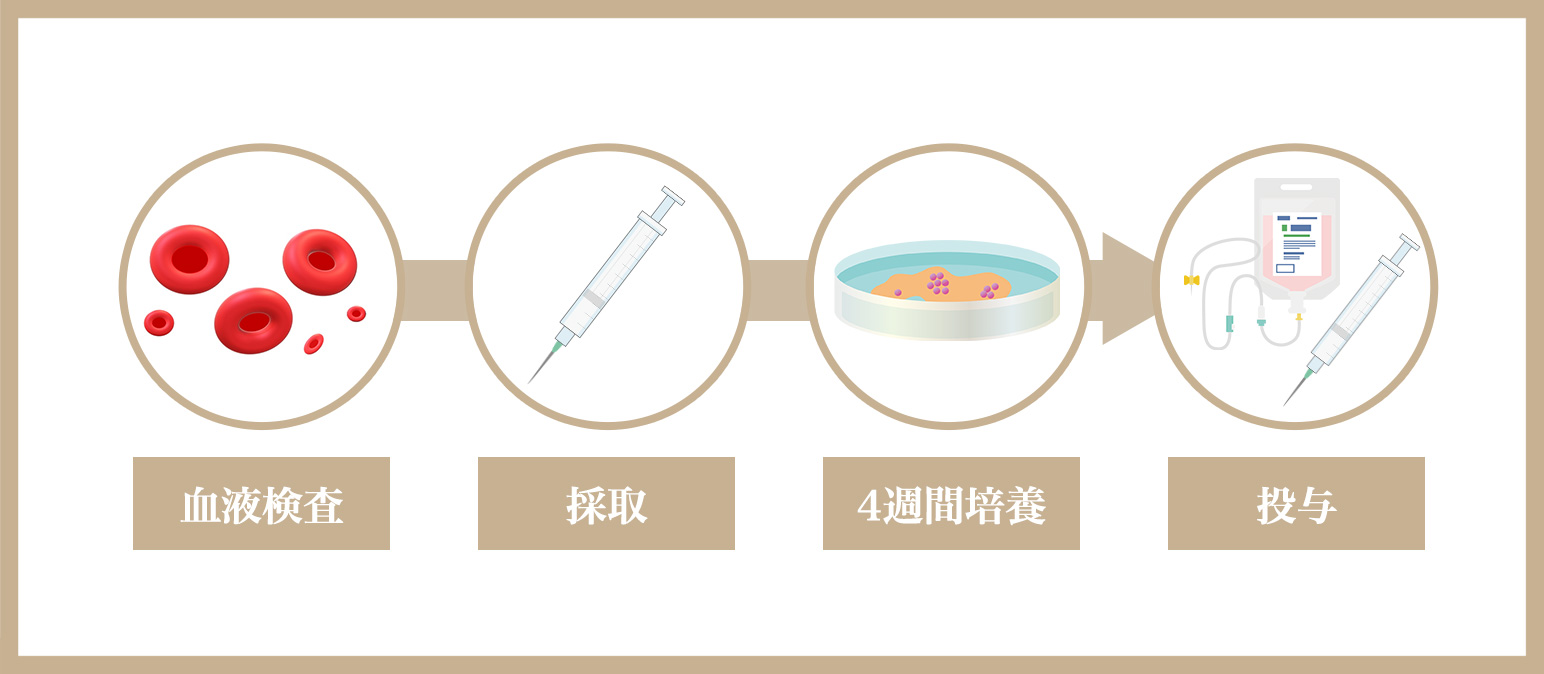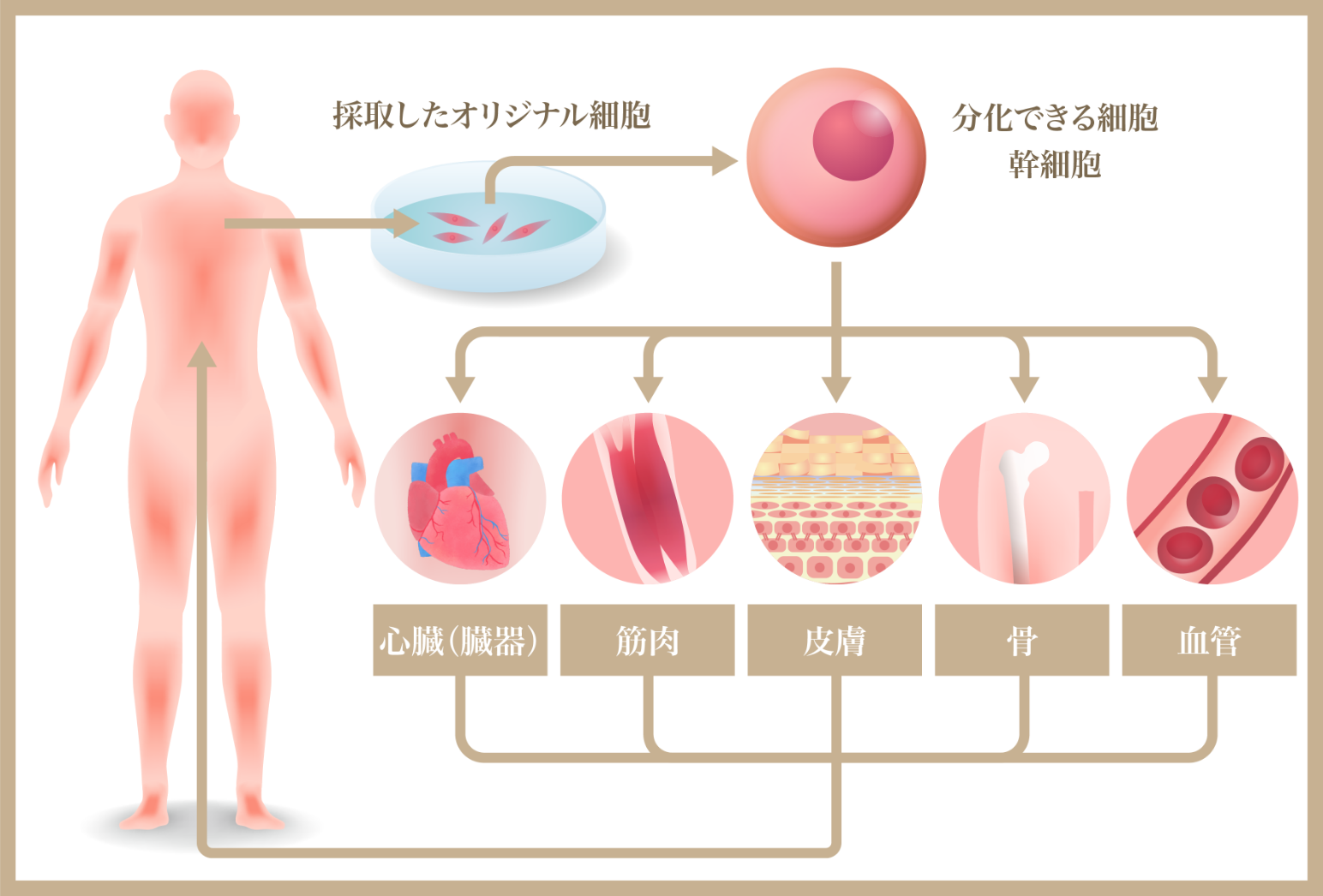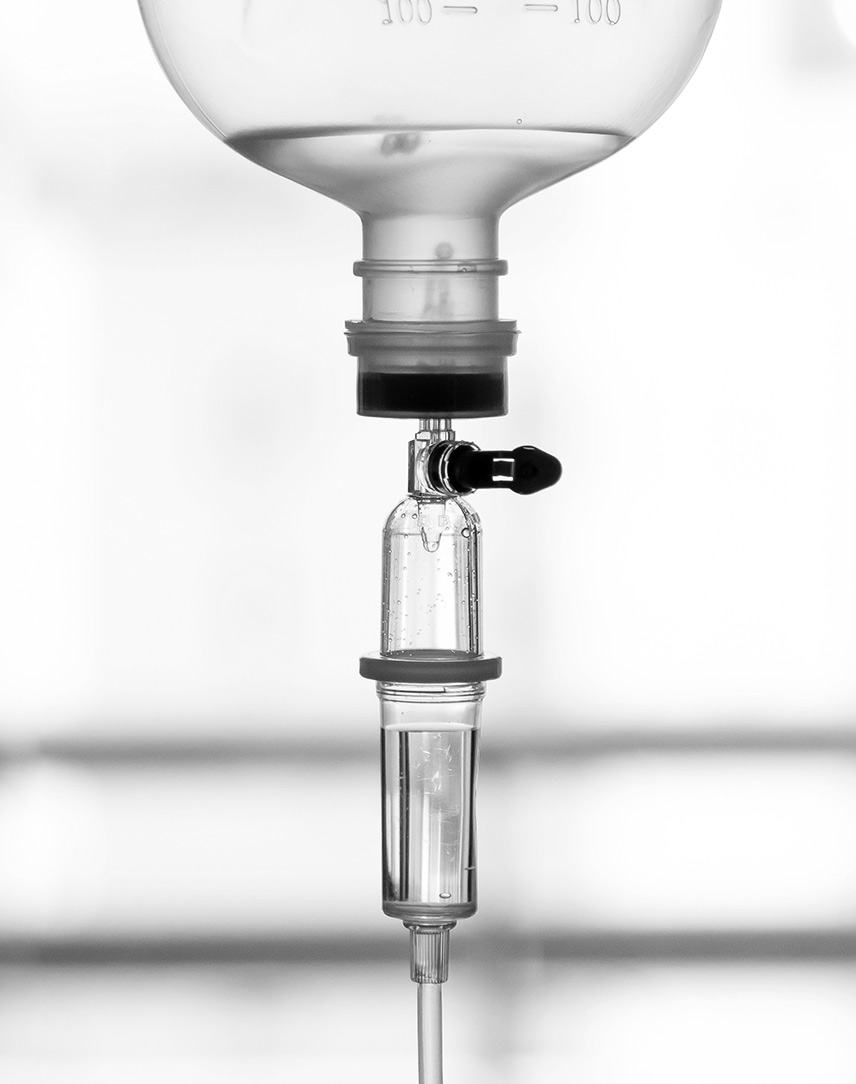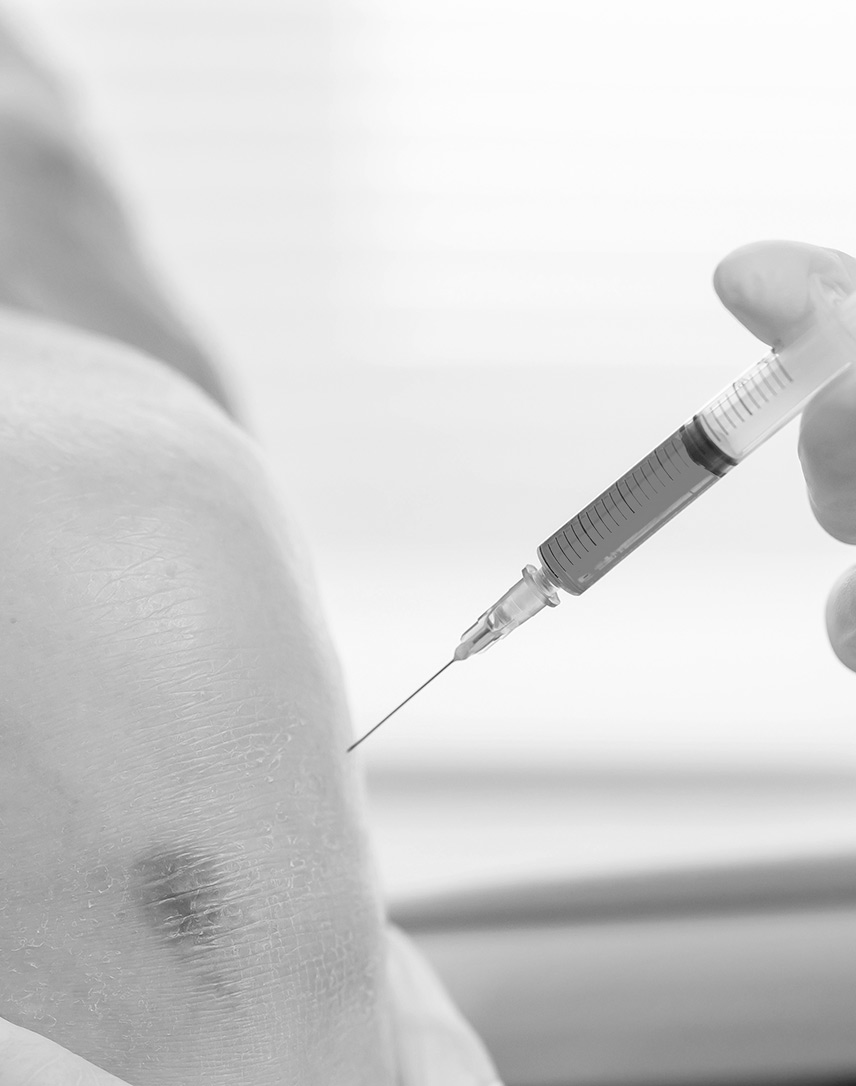What is MSC (Mesenchymal Stem Cell) Therapy?
Repair and regenerate aging tissues using your own stem cells

In MSC (Mesenchymal Stem Cell Therapy), a small number of stem cells are first collected from the patient and cultured under strict management.
Then, they are injected intravenously or locally into the targeted area that needs repair, promoting tissue regeneration.

Used for treating dementia, cerebrovascular disorders, osteoarthritis, chronic pain, and more
In recent years, the characteristics of stem cells have been widely applied in medical research, and many medical institutions are already implementing related treatments.
Using the self-replication function of stem cells, a small number of cells extracted from fat, bone marrow, teeth, etc., can be exponentially expanded.
By transplanting these obtained stem cells into damaged areas via local or intravenous injection, regeneration of the affected area is expected.
- Regulates immune and inflammatory abnormalities, restoring normal function (Immunomodulatory effect)
- Has the ability to gather at damaged tissue sites (Homing effect)
- Secretes various functional substances that influence surrounding cells (Paracrine effect)
- Does not require genetic manipulation, with a very low risk of cancer
- Uses autologous stem cells, minimizing the risk of rejection and allergic reactions
Case Studies of MSC (Mesenchymal Stem Cell) Therapy
Basic and clinical research reports from both domestic and international studies have shown the effectiveness of stem cells in various diseases.
- Stroke
- Brain contusion
- Spinal cord injury
- Multiple sclerosis
- Hypoxic-ischemic encephalopathy
- Parkinson’s disease
- Alzheimer’s disease
- ALS (Amyotrophic lateral sclerosis)
- Poliomyelitis
- Peripheral neuropathy
- Chronic pain
- Knee osteoarthritis
- Tendon injuries
- Arthritis
- Refractory fractures
- Palmoplantar pustulosis
- Atopic dermatitis
- Acne scars
- Vitiligo
- AGA (Androgenetic alopecia)
- Other types of hair loss
- Myocardial infarction, angina
- Arteriosclerosis
- Peripheral arterial disease
- Diabetes
- Chronic kidney disease
- Liver disease (hepatitis, cirrhosis, liver injury, etc.)
- Primary biliary cirrhosis
- Emphysema
- Pulmonary fibrosis
- Chronic obstructive pulmonary disease (COPD)
- Autoimmune diseases (e.g., rheumatoid arthritis, systemic lupus erythematosus)
- GVHD (Graft-versus-host disease)
- Female menopause disorders
- Male menopause disorders
- Benign prostatic hyperplasia
- Erectile dysfunction
- Urinary incontinence
- Bone defects
- Osteoporosis
- Periodontal disease
- Post-mastectomy breast reconstruction
- Breast augmentation
- Anti-aging medicine (skin and vascular rejuvenation)
- COVID-19 infection
- COVID-19 sequelae
Characteristics of MSC (Mesenchymal Stem Cell) Therapy

Intravenous Infusion Therapy
Stem cells are isolated from the patient’s adipose tissue, cultured to increase their numbers, and then transplanted into the body via intravenous infusion.
The various factors released by mesenchymal stem cells help alleviate inflammation and regulate immunity, restoring normal immune function.

Local Treatment
Stem cells are isolated from the patient’s adipose tissue, cultured to increase their numbers, and then directly injected into the affected area.
The transplanted mesenchymal stem cells promote regeneration through differentiation while alleviating pain with their anti-inflammatory properties.
Advantages of MSC (Mesenchymal Stem Cell) Therapy
01
Managed under the Ministry of Health, Labour and Welfare’s regenerative medical plans, ensuring high safety standards.
02
By culturing autologous immune cells and reinfusing them, side effects are virtually nonexistent.
03
Recognized as a treatment option.
04
Leaves no surgical scars.
Please consult our clinic for more details.